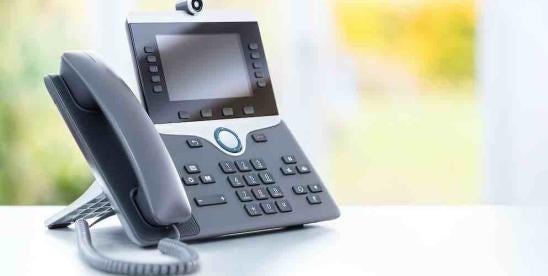Update: Live Vox helped out a lot in explaining the background here. Live Vox itself did not testify that its system was an ATDS was not subpoenaed to testify. The Defendant apparently shot itself in the foot with admissions that were not factually accurate. In fairness to LiveVox I have updated this story to address these issues.
I have to be honest, I didn’t expect to be writing any updates post-Facebook related to summary judgment rulings in favor of Plaintiffs on ATDS issues.
Sure I figured a Plaintiff would raise a trial-worthy issue once in a while–and that has already happened— but a Court entering judgment finding that a system was necessarily an ATDS on the record before it? That almost seems impossible after Facebook.
Well it just happened. And that word “capacity” is back. (But it looks like the Defendant’s own admissions have more to do with this story than anything else.)
In Williams v. Schanck, Case No.: 5:15-cv-01434-MHH, 2021 U.S. Dist. LEXIS 116218 (N.D. Ala. June 22, 2021) the court held the dialer used by the Defendant was an ATDS -and entered judgment for the Plaintiff.
I can’t believe I just typed that sentence.
On the ATDS issue, here’s what the Court finds:
The Eleventh Circuit Court of Appeals recently noted that “[t]he statute . . . applies to devices that have the ‘capacity’ to identify randomly generated numbers; it does not require that capacity to be used in every covered call.” (Citing Glasser). So, Mr. Williams does not have to prove that Stellar’s ATDS identified his cell phone number randomly; he needs to show that only that Stellar’s ATDS had the capacity to identify randomly generated numbers. Because the evidence establishes that Stellar’s LiveVox system, using RPC and QC, was an ATDS, Mr. Williams has demonstrated that Stellar placed calls to his cell phone, using an ATDS for some calls and leaving prerecorded messages during others, and that Stellar did so without his consent
I know that is pretty thin analysis–where is the discussion of R&SNG usage?–but that is what the Court held.
I reached out to LiveVox who clarified that it was never subpoenaed in the Williams case, and did not provide any documents, testimony, or declaration in that lawsuit. The only deposition testimony to which the Court referred was by a corporate representative of Stellar Recovery; that deposition was taken in October 2016. When the Court refers to testimony on page 6 of the slip opinion (or anywhere else), it is referring to that testimony.
So it was the corporate witness testifying about the LiveVox system AND NOT Live Vox itself.
More generally–per Live Vox, and I agree– the Court did not perform the analysis required under Facebook. If it had (per Live Vox) (and if information from LiveVox had been included in the record), the Court would not have ruled that the LiveVox RPC and QC services are each an ATDS.
Again per Live Vox (I have not independently verified):
Neither of those services has ever stored phone numbers to be called using a random or sequential number generator. Neither RPC nor QC has ever produced numbers to be called using a random or sequential number generator. And those services have never had the capacity to use a random or sequential number generator to either store or produce phone numbers to be called. Even under footnote 7, none of our outbound dialing systems have the capacity to sort numbers to be called in a random order.
Live Vox also Notes:
In addition to being incorrect, the Court’s ruling on the ATDS issue is unnecessary. According to the Stellar records and deposition testimony provided to the Court, each of the 11 calls on which the Court found liability under the TCPA involved the playing of a prerecorded message.
So this looks like a situation where Live Vox was sucked into something it shouldn’t have been. The Defendant made admissions it–seemingly–should not have made and that’s how the ruling came to be. Given the Defendant’s admissions it is unsurprising the Court found that the systems were, in fact, an ATDS and entered judgment in favor of the Plaintiff. So this is apparently less a case about LiveVox being an ATDS and more a case about a Defendant not protecting its interests proprly.
Oh, and things get even more fun.
The Court held that the CEO of the Defendant could be held personally liable for the activity of the company:
“Mr. Schanck knew of, approved of, and signed off on Stellar’s TCPA practices. (Doc. 82-1, p. 10, ¶¶ 11-13). He was the Chairman and Chief Executive Officer of Stellar. (Doc. 82-1, p. 10, ¶¶ 6-9; see also Doc. 43-1, p. 8, tp. 26; Doc. 49-2, p. 2). He was involved in the operations of Stellar, including liquidating its accounts receivable in March 2018 to satisfy a creditor. (Doc. 62, p. 1; Doc. 62-1, p. 1). The evidence does not support Mr. Schanck’s claim that he was simply an investor during the life of Stellar. (See Doc. 87, pp. 3-4). Rather, the evidence shows that Mr. Schanck oversaw Stellar, including its TCPA practices.”
So there you go. Defendant admits itself into a finding that a dialer that probably isn’t an ATDS is an ATDS. CEO personally liable. A perfect TCPA disaster.
We’ll keep an eye on this.




 i
i


